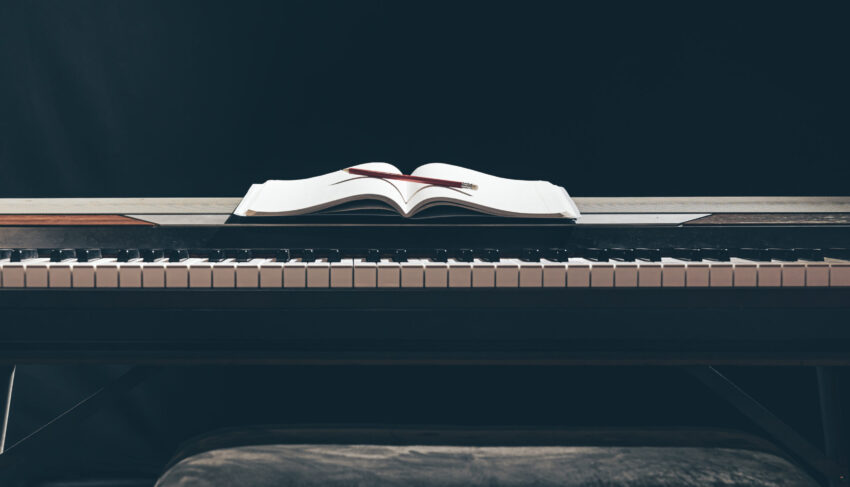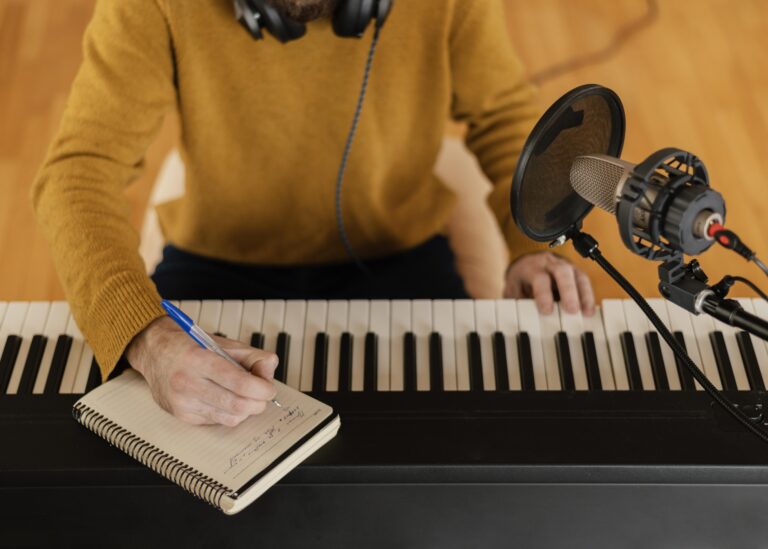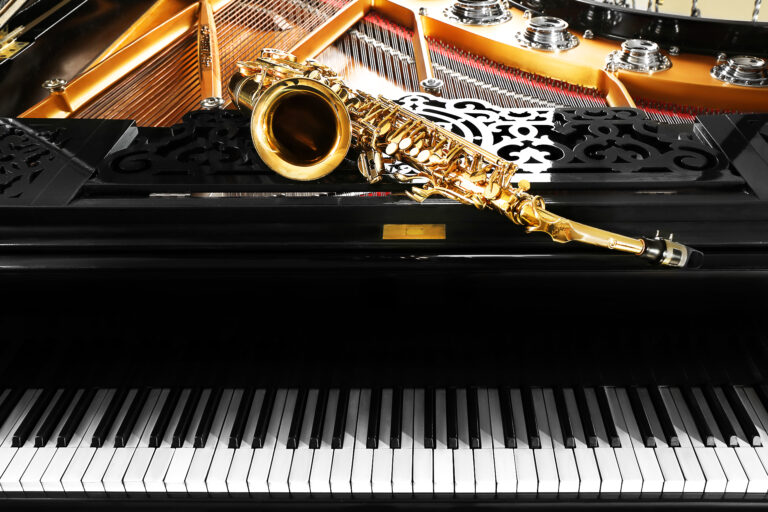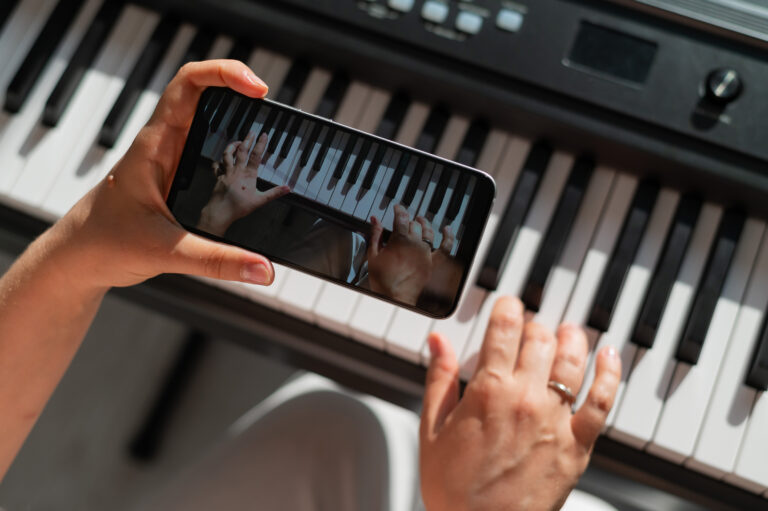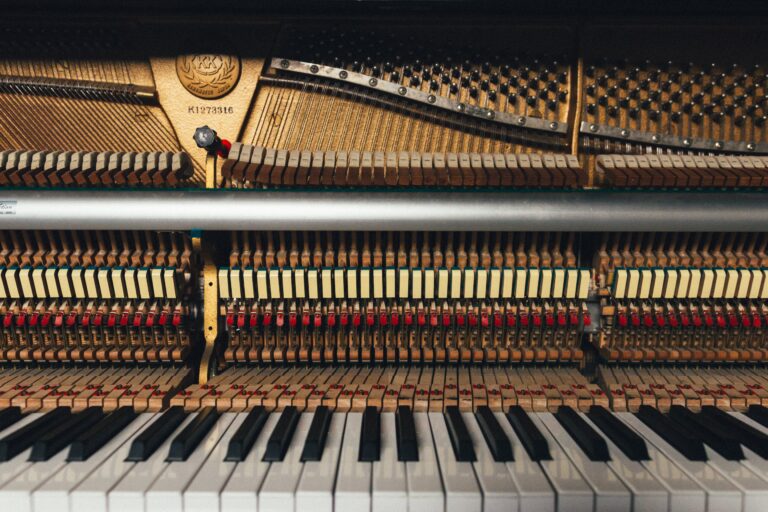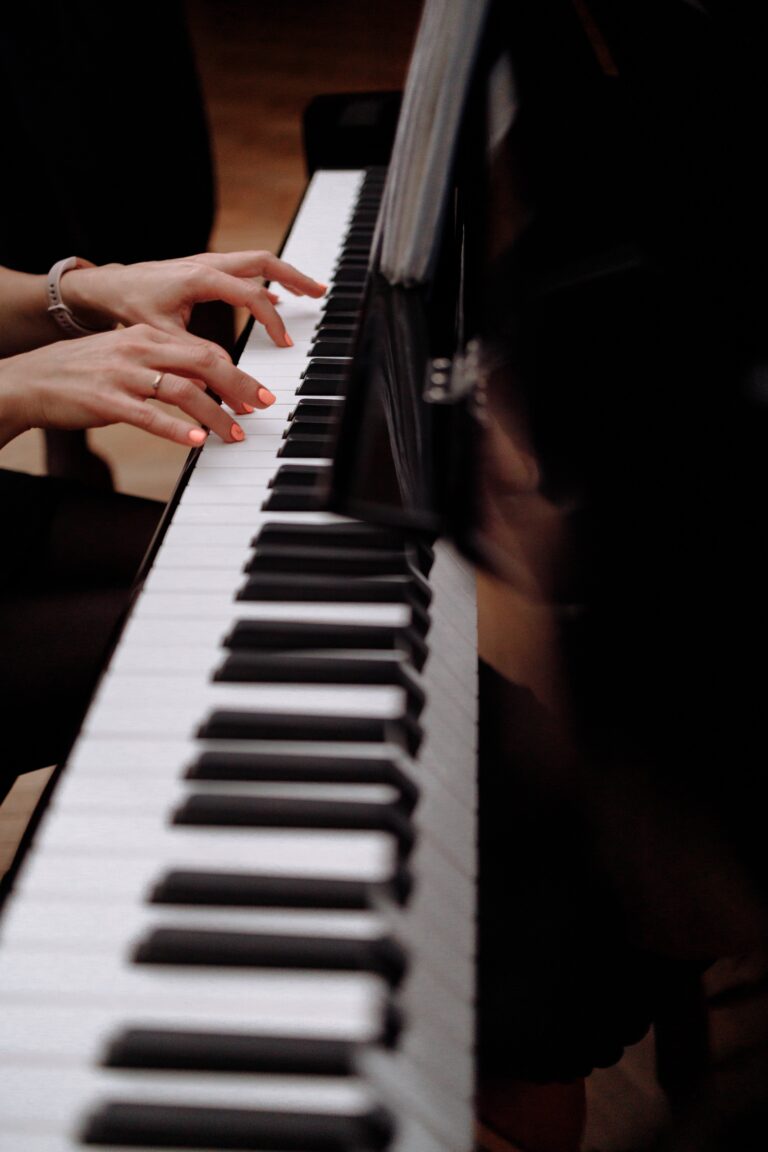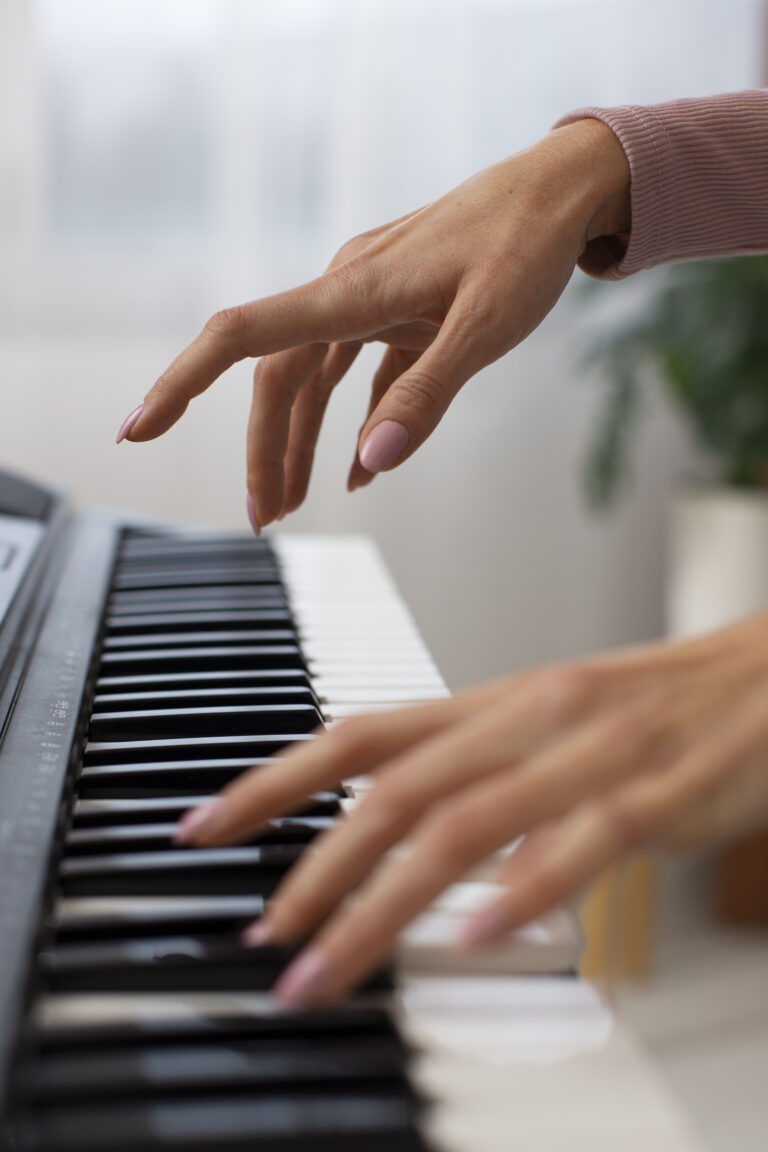From Novice to Virtuoso: The Definitive Guide to the Best Piano Books for All
If you’re interested in learning how to play the piano, or if you’re already an experienced pianist looking to expand your knowledge, you may be wondering what the best books on piano are. With so many options available, it can be overwhelming to choose the right one. In this article, we’ll explore some of the best books on piano that can help you improve your skills and knowledge.
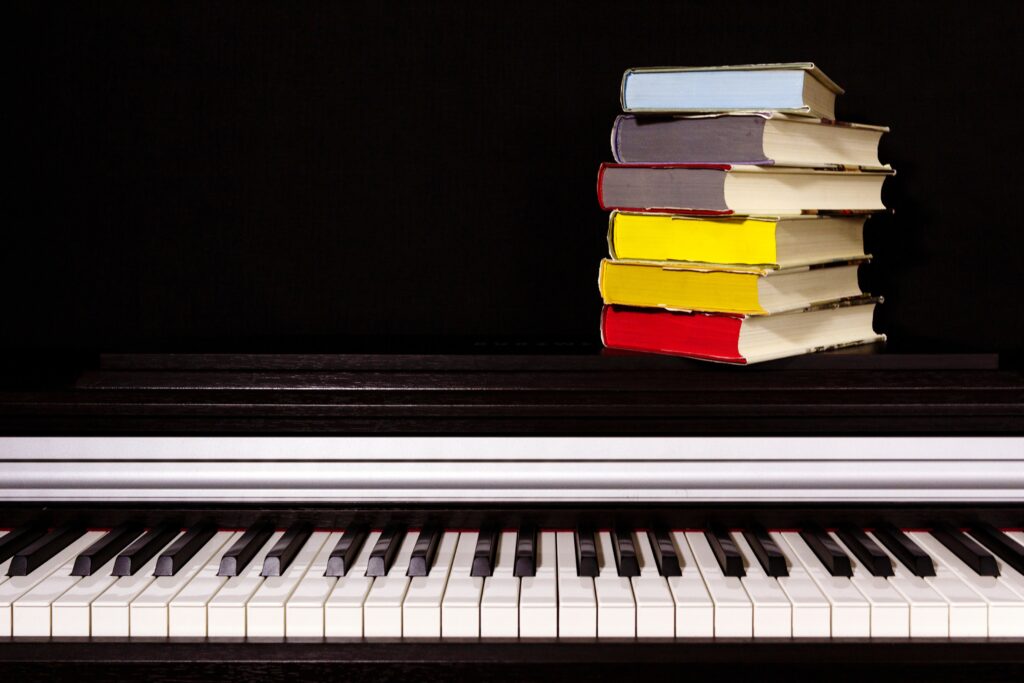
Whether you’re looking for a comprehensive guide to piano technique or a collection of sheet music to practice with, there’s a book out there for you. We’ll cover a range of different books, from beginner-friendly guides to advanced texts for experienced players. No matter what your skill level or musical interests are, there’s something on this list for you. So, let’s dive in and explore some of the best books on piano.
Essential Piano Technique Books

If you’re serious about improving your piano playing skills, then you need to focus on mastering the basics and developing your finger dexterity. Here are two essential types of piano technique books that will help you achieve these goals:
Mastering the Basics
To become a proficient pianist, you must first master the basics of piano playing. These books are designed to help you develop a strong foundation in piano technique, including hand positioning, posture, and proper use of the pedals. Some of the best books in this category include:
- “Fundamentals of Piano Technique” by Seymour Fink
- “The Art of Piano Playing” by Heinrich Neuhaus
- “Piano Technique” by Walter Gieseking and Karl Leimer
Each of these books provides a comprehensive guide to piano technique, with detailed explanations and exercises to help you improve your skills.
Finger Exercises and Etudes
Once you have a solid foundation in piano technique, it’s time to focus on developing your finger dexterity. Finger exercises and etudes are designed to help you improve your finger strength, speed, and accuracy. Some of the best books in this category include:
- “Hanon: The Virtuoso Pianist in 60 Exercises” by Charles-Louis Hanon
- “Czerny: School of Velocity, Op. 299” by Carl Czerny
- “The Virtuoso Pianist” by Carl Tausig
Each of these books contains a variety of exercises and etudes that are specifically designed to help you improve your finger technique. By practising these exercises regularly, you’ll be able to play more complex pieces with greater ease and precision.
Mastering the basics and developing your finger dexterity are essential for becoming a proficient pianist. By using the books listed above, you’ll be able to improve your piano playing skills and take your playing to the next level.
Classic Piano Method Books

If you’re looking for a comprehensive guide to learning piano, classic method books are a great place to start. These books have been used by generations of pianists and are highly recommended by music educators.
Beginner Methods
For those who are just starting, “Alfred’s Basic Piano Library” by Willard A. Palmer, Morton Manus, and Amanda Vick Lethco is a great choice. This series is designed for beginners of all ages and includes easy-to-follow lessons that cover the basics of piano playing.
Another excellent option is “Piano Adventures” by Nancy and Randall Faber. This series is also geared towards beginners and features a variety of engaging exercises and songs to help you develop your piano skills.
Intermediate Progressions
Once you’ve mastered the basics, it’s time to move on to intermediate-level method books. “The Art of Piano Playing” by Heinrich Neuhaus is a classic text that has been used by pianists for generations. This book covers a wide range of topics, including technique, interpretation, and performance.
For a more contemporary approach, “Fundamentals of Piano Technique” by Seymour Fink is a great choice. This book focuses on building strong technical skills and includes a variety of exercises and drills to help you improve your playing.
Advanced Techniques
If you’re an advanced pianist looking to take your skills to the next level, “The Virtuoso Pianist” by Charles-Louis Hanon is a must-have. This book is a collection of exercises designed to improve finger strength, dexterity, and speed.
Another great option for advanced pianists is “Piano Technique” by Walter Gieseking and Karl Leimer. This book covers a wide range of advanced techniques, including finger independence, tone production, and pedal technique.
No matter what your skill level, classic piano method books are an essential part of any pianist’s library. With their comprehensive lessons and engaging exercises, these books will help you develop your skills and become a better pianist.
Genre-Specific Piano Literature

If you’re looking to specialize in a particular genre, there are plenty of piano books out there that cater to your interests. Here are some of the best books for three popular genres:
Jazz Piano Essentials
Jazz piano is all about improvisation and creativity. To master this genre, you need to have a strong foundation in music theory and a good ear for melody. Here are some books that can help you get started:
- “The Jazz Piano Book” by Mark Levine: This comprehensive guide covers everything from basic jazz theory to advanced improvisation techniques. It’s a must-read for anyone serious about jazz piano.
- “The Real Book” by Hal Leonard: This classic collection of jazz standards is essential for any jazz pianist. It includes lead sheets for hundreds of popular tunes, so you’ll never run out of material to practice.
Classical Repertoire
Classical piano is all about precision and technique. To play this genre well, you need to have a strong foundation in music theory and a lot of patience. Here are some books that can help you master the classics:
- “The Well-Tempered Clavier” by Johann Sebastian Bach: This collection of preludes and fugues is a cornerstone of classical piano literature. It’s a challenging but rewarding work that will help you improve your technique and musicality.
- “The Piano Works of Rachmaninoff” by Sergei Rachmaninoff: Rachmaninoff’s piano works are some of the most beautiful and technically demanding pieces in the classical repertoire. This collection includes all of his solo piano works, so you’ll have plenty of material to work with.
Pop and Contemporary
Pop and contemporary piano is all about playing by ear and improvisation. To master this genre, you need to have a good sense of rhythm and a creative spirit. Here are some books that can help you get started:
- “The Pop Piano Book” by Mark Harrison: This book covers everything from basic chord progressions to advanced improvisation techniques. It’s a great resource for anyone looking to play pop and rock piano.
- “The Contemporary Keyboardist” by Dave Weckl: This book covers a wide range of contemporary styles, including jazz, funk, and Latin. It’s a great resource for anyone looking to expand their musical horizons.
Theory and Musicianship for Pianists
As a pianist, it’s crucial to have a solid foundation in music theory and musicianship. These skills will help you understand the music you’re playing and enable you to communicate more effectively with other musicians. Here are two areas to focus on:
Music Theory Fundamentals
To become a proficient pianist, you need to have a good grasp of music theory. This includes understanding the basics of harmony, chord progressions, and scales. You should also be able to read and interpret sheet music, including understanding key signatures, time signatures, and musical notation.
One of the best books to help you master these fundamentals is “The Complete Idiot’s Guide to Music Theory” by Michael Miller. This book provides a clear and concise overview of music theory concepts, with plenty of examples and exercises to reinforce your learning. It’s written in an accessible style, making it easy to understand even if you have no prior musical experience.
Sight-Reading and Ear Training
Sight-reading and ear training are essential skills for any pianist. Sight-reading involves being able to read and play music on sight, without prior preparation. Ear training, on the other hand, involves being able to identify and reproduce musical sounds by ear.
Two excellent resources for developing these skills are “Sight Reading & Rhythm Every Day, Book 1A” by Helen Marlais and “Ear Training for the Contemporary Musician” by Wyatt & Schroeder. The former provides a structured approach to developing sight-reading skills, with plenty of exercises to help you improve. The latter focuses on ear training, with exercises designed to help you recognize and reproduce intervals, chords, and melodies.
By focusing on these two areas, you’ll be well on your way to becoming a skilled and knowledgeable pianist.
Inspirational Stories and Biographies
Composers’ Lives
If you’re looking for inspiration and insight into the minds of some of the greatest composers in history, several biographies are worth checking out. One of the most popular is “Beethoven: The Man Revealed” by John Suchet, which delves into the life of the famous composer and sheds light on the struggles he faced throughout his career.
Another great option is “Mozart: A Life” by Paul Johnson, which provides a detailed look at the life and times of Wolfgang Amadeus Mozart. This book explores his early life as a child prodigy, his rise to fame as a composer, and his untimely death at the age of 35.
Concert Pianists’ Journeys
For those interested in the journeys of famous concert pianists, several biographies offer a glimpse into the lives of these talented musicians. One of the most fascinating is “The Art of Possibility” by Rosamund Stone Zander and Benjamin Zander, which chronicles the career of Benjamin Zander, a world-renowned conductor and pianist.
Another great option is “The Piano Shop on the Left Bank” by Thad Carhart, which follows the author’s journey as he seeks out the perfect piano in Paris and explores the world of piano restoration and repair.
No matter what your interests or preferences may be, there is sure to be a biography or inspirational story out there that will inspire and motivate you on your piano journey.
Frequently Asked Questions
What are the top recommended piano books for absolute beginners?
For absolute beginners, the top recommended piano books include “Piano for Dummies” by Blake Neely, “Alfred’s Basic Piano Library” by Willard A. Palmer, and “The Complete Idiot’s Guide to Piano” by Brad Hill.
Which piano guide is considered the best for adult learners?
If you are an adult learner, “Adult Piano Adventures” by Nancy and Randall Faber is considered one of the best piano guides. Other great options include “Piano Scales, Chords & Arpeggios Lessons with Elements of Basic Music Theory” by Damon Ferrante and “The Piano Book: Buying & Owning a New or Used Piano” by Larry Fine.
Are there any highly suggested piano books for children starting?
Yes, there are several great piano books for children starting. Some of the most highly suggested ones include “Piano Adventures” by Nancy and Randall Faber, “My First Piano Adventure” by Nancy and Randall Faber, and “John Thompson’s Easiest Piano Course” by John Thompson.
How effective is self-teaching piano using a book?
Self-teaching piano using a book can be effective if you are disciplined and dedicated to practising regularly. However, it is important to note that having a teacher can provide valuable feedback and guidance that a book cannot.
What instructional books do experts suggest for mastering piano basics?
Experts suggest “Fundamentals of Piano Practice” by Chuan C. Chang, “The Art of Piano Playing” by Heinrich Neuhaus, and “The Piano Handbook” by Carl Humphries for mastering piano basics.
Can a beginner become proficient in piano through books alone?
While a beginner can become proficient in piano through books alone, it is highly recommended to have a teacher for guidance and feedback. A teacher can also help with proper technique and prevent bad habits from forming.
